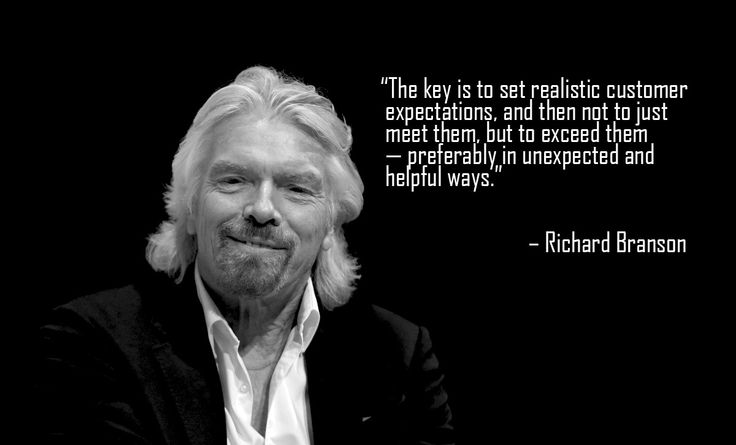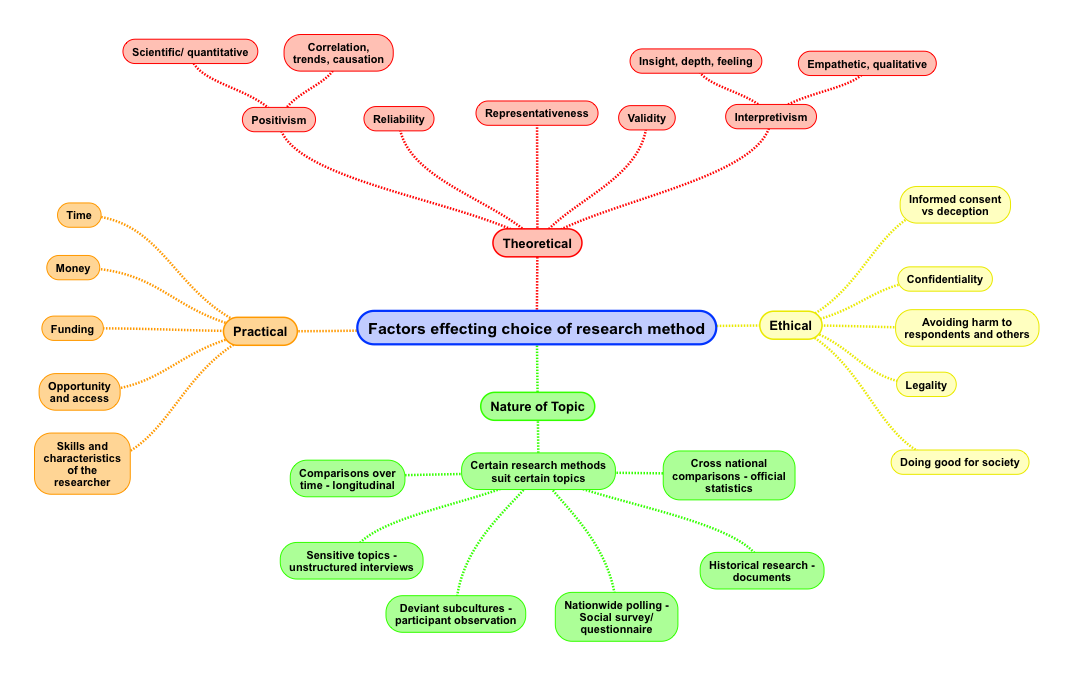Setting realistic expectations
7 Ways to Set Realistic Expectations for Yourself
Setting self-expectations is beneficial to your life, but they must be realistic. Positive self-talk, practicing gratitude, and letting go are just a few ways you can focus on improving your life and well-being.
Self-expectations can provide clarity, direction, and accountability. These expectations should be realistic and focus on your long-term goals. It can be hard to navigate expectations, but some tips can help you find success.
The downside of self-expectations is that they can lead to avoidance, confusion, or fear. Without positive ways to set and maintain expectations, you might experience obstacles that prevent you from accomplishing your goal.
While the expectations can be hard to manage sometimes, they set you up for success. You’ll know what to strive for and always have your goals in mind. These expectations also allow you to control your success and well-being.
When setting self-expectations, being realistic is essential. You might set yourself up for failure if you aren’t being realistic. Consider the following tips to help you set expectations that work and are achievable:
1. Determine expectations early on
When you determine your self-expectations early on, you’ll know which direction you should go. It also sets the tone for your pace and creative endeavors while encouraging accountability.
You can take some time to think about what you want for yourself and your life. Then, consider building your self-expectations around what you want from life.
2. Learn to let go
When you don’t meet your expectations, it can lead to negative feelings. When this happens, letting go can help you refocus and meet your goals.
Letting go doesn’t mean that you should ignore your emotions. Instead, it means you should acknowledge your feelings and let go as you work to overcome what happened.
You can also practice letting go of expectations for situations and other people. One way you can do this is by reminding yourself that you can’t control others. You’re only in charge of your life and might not always meet external expectations. And that’s OK.
One way you can do this is by reminding yourself that you can’t control others. You’re only in charge of your life and might not always meet external expectations. And that’s OK.
3. Practice positive self-talk
When setting self-expectations, you might consider how you talk to yourself. If your thoughts and self-talk involve negative remarks, it could interfere with your ability to accomplish your goals.
Your thoughts can make you feel good or bring you down. If you experience negative self-talk, try shifting your mindset and rephrasing the detrimental thought process.
You can also consider keeping a journal when negative self-talk creeps in. Write your thoughts and feelings, giving yourself time to examine your words. You may also consider using your journal to:
- write your goals
- track your progress
- write positive affirmations in your journal
4. Give yourself time and grace
While it’s good to set deadlines, setbacks happen. You might not accomplish your goals in your planned timeframe, and it’s OK.
You might not accomplish your goals in your planned timeframe, and it’s OK.
Giving yourself time and grace allows you to reach your goals and live up to your expectations without experiencing burnout.
Choosing to push back deadlines or extending your timeframe can be beneficial, even if the vision takes longer to manifest. Feeling frustrated might make you feel like you should go faster and work harder, but it’s not a realistic plan.
Sacrificing your rest and leisure time can interfere with expectations of yourself and your life.
Realistic expectations involve flexibility. Rigid expectations aren’t always realistic because you never know when things can change. Consider giving yourself the chance to change the plan to accommodate your situation.
5. Focus on what you’ve accomplished
Feeling frustrated with yourself can lead to unrealistic expectations.
If this happens, you can think about what you’ve accomplished, helping you keep things in perspective. It can help you find pleasure in what you do, knowing you’ve developed along the way.
It can help you find pleasure in what you do, knowing you’ve developed along the way.
6. Appreciate what you already have
When setting self-expectations, you can focus on appreciating what you already have. Rather than thinking about what you want, you can consider the things you love right now.
Focusing only on what you want can make you forget the good things in your life, disrupting your well-being.
If you don’t stop to embrace what you have, it can leave little time for hobbies, your friends and loved ones, and small joys in life. Focusing on the present can help you recognize ways you’ve already reached your self-expectations.
7. Build confidence
Having self-confidence can help you overcome challenges positively. It’ll help you set realistic expectations as you recognize what you deserve and are capable of.
You’re more likely to ask for what you want when you feel confident. It can also help you pursue your passions, helping you fulfill the expectations you have for your life.
A large 2020 study of 674 students of Mexican origin between fifth and eleventh grade, suggests that students with higher self-esteem showed improvements in their grades. In turn, getting better grades and test scores can increase self-confidence.
You’re not the only person who has expectations of you. Other people in your life might impose unrealistic exceptions on you, disrupting your peace and well-being.
Your relationships come with expectations, although some might be subconscious. Relationships come with hopes for yourself and others, so the people closest to you might want you to live up to their ideals.
You don’t have to feel pressure and accept these expectations, as finding ways to cope with them can improve the situation.
A large 2021 study of Americans from 18 to 29 years old, found a positive correlation between falling behind in adulthood milestones, anxiety, and depression.
Studies show that not meeting the perceived expectations from peers regarding adulthood milestones can possibly increase anxiety. And not meeting the perceived expectations from society and parents can increase symptoms of depression.
And not meeting the perceived expectations from society and parents can increase symptoms of depression.
Understanding where expectations come from
If someone close to you has unrealistic expectations, it can help if you know where the expectations originate. They might have learned it from:
- their family
- society
- personal experiences
While understanding where it came from shouldn’t change your opinion, it can help you understand the other person. Then, you can discuss how you feel differently, allowing them to see your point of view.
It can help them adjust their expectations, improving your relationship with them.
Consider if expectations are healthy
When you and the other person share healthy expectations, it can promote relationship growth. But if the expectations are unrealistic, it can hinder development and cause issues.
Determining if the expectations are healthy involves considering if they’re:
- appropriate, fair, and harmless
- flexible and patient
- fulfilling
- accepting
- respectful
- honest
- productive
Keep trying
No one is perfect, and you might not meet expectations right away. If you determine that the person’s expectations of you are healthy, you can think about whether you want those things. If so, consider trying until you achieve the goal and meet the expectations.
If you determine that the person’s expectations of you are healthy, you can think about whether you want those things. If so, consider trying until you achieve the goal and meet the expectations.
It’s important to remember that striving to meet unrealistic expectations can interfere with your well-being. Coping with the expectations other people have for you involves considering whether they’re realistic.
Setting realistic expectations for yourself can improve your life and well-being. It involves setting standards but being honest about what you can accomplish in a specific timeframe. Realistic expectations help you improve your life and make the most out of it.
Once you have realistic expectations, you can explore what you want from your goals. This thought process might help you find that you’ve already achieved your goals. Then, you can set new ones that allow further development and fulfillment.
Setting your expectations too high can cause you to discredit yourself.![]() Consider setting realistic expectations so you can live your best life and achieve your goals without experiencing burnout.
Consider setting realistic expectations so you can live your best life and achieve your goals without experiencing burnout.
7 Ways to Set Realistic Expectations for Yourself
Setting self-expectations is beneficial to your life, but they must be realistic. Positive self-talk, practicing gratitude, and letting go are just a few ways you can focus on improving your life and well-being.
Self-expectations can provide clarity, direction, and accountability. These expectations should be realistic and focus on your long-term goals. It can be hard to navigate expectations, but some tips can help you find success.
The downside of self-expectations is that they can lead to avoidance, confusion, or fear. Without positive ways to set and maintain expectations, you might experience obstacles that prevent you from accomplishing your goal.
While the expectations can be hard to manage sometimes, they set you up for success. You’ll know what to strive for and always have your goals in mind. These expectations also allow you to control your success and well-being.
These expectations also allow you to control your success and well-being.
When setting self-expectations, being realistic is essential. You might set yourself up for failure if you aren’t being realistic. Consider the following tips to help you set expectations that work and are achievable:
1. Determine expectations early on
When you determine your self-expectations early on, you’ll know which direction you should go. It also sets the tone for your pace and creative endeavors while encouraging accountability.
You can take some time to think about what you want for yourself and your life. Then, consider building your self-expectations around what you want from life.
2. Learn to let go
When you don’t meet your expectations, it can lead to negative feelings. When this happens, letting go can help you refocus and meet your goals.
Letting go doesn’t mean that you should ignore your emotions. Instead, it means you should acknowledge your feelings and let go as you work to overcome what happened.
You can also practice letting go of expectations for situations and other people. One way you can do this is by reminding yourself that you can’t control others. You’re only in charge of your life and might not always meet external expectations. And that’s OK.
3. Practice positive self-talk
When setting self-expectations, you might consider how you talk to yourself. If your thoughts and self-talk involve negative remarks, it could interfere with your ability to accomplish your goals.
Your thoughts can make you feel good or bring you down. If you experience negative self-talk, try shifting your mindset and rephrasing the detrimental thought process.
You can also consider keeping a journal when negative self-talk creeps in. Write your thoughts and feelings, giving yourself time to examine your words. You may also consider using your journal to:
- write your goals
- track your progress
- write positive affirmations in your journal
4.
 Give yourself time and grace
Give yourself time and grace While it’s good to set deadlines, setbacks happen. You might not accomplish your goals in your planned timeframe, and it’s OK.
Giving yourself time and grace allows you to reach your goals and live up to your expectations without experiencing burnout.
Choosing to push back deadlines or extending your timeframe can be beneficial, even if the vision takes longer to manifest. Feeling frustrated might make you feel like you should go faster and work harder, but it’s not a realistic plan.
Sacrificing your rest and leisure time can interfere with expectations of yourself and your life.
Realistic expectations involve flexibility. Rigid expectations aren’t always realistic because you never know when things can change. Consider giving yourself the chance to change the plan to accommodate your situation.
5. Focus on what you’ve accomplished
Feeling frustrated with yourself can lead to unrealistic expectations.
If this happens, you can think about what you’ve accomplished, helping you keep things in perspective. It can help you find pleasure in what you do, knowing you’ve developed along the way.
It can help you find pleasure in what you do, knowing you’ve developed along the way.
6. Appreciate what you already have
When setting self-expectations, you can focus on appreciating what you already have. Rather than thinking about what you want, you can consider the things you love right now.
Focusing only on what you want can make you forget the good things in your life, disrupting your well-being.
If you don’t stop to embrace what you have, it can leave little time for hobbies, your friends and loved ones, and small joys in life. Focusing on the present can help you recognize ways you’ve already reached your self-expectations.
7. Build confidence
Having self-confidence can help you overcome challenges positively. It’ll help you set realistic expectations as you recognize what you deserve and are capable of.
You’re more likely to ask for what you want when you feel confident. It can also help you pursue your passions, helping you fulfill the expectations you have for your life.
A large 2020 study of 674 students of Mexican origin between fifth and eleventh grade, suggests that students with higher self-esteem showed improvements in their grades. In turn, getting better grades and test scores can increase self-confidence.
You’re not the only person who has expectations of you. Other people in your life might impose unrealistic exceptions on you, disrupting your peace and well-being.
Your relationships come with expectations, although some might be subconscious. Relationships come with hopes for yourself and others, so the people closest to you might want you to live up to their ideals.
You don’t have to feel pressure and accept these expectations, as finding ways to cope with them can improve the situation.
A large 2021 study of Americans from 18 to 29 years old, found a positive correlation between falling behind in adulthood milestones, anxiety, and depression.
Studies show that not meeting the perceived expectations from peers regarding adulthood milestones can possibly increase anxiety. And not meeting the perceived expectations from society and parents can increase symptoms of depression.
And not meeting the perceived expectations from society and parents can increase symptoms of depression.
Understanding where expectations come from
If someone close to you has unrealistic expectations, it can help if you know where the expectations originate. They might have learned it from:
- their family
- society
- personal experiences
While understanding where it came from shouldn’t change your opinion, it can help you understand the other person. Then, you can discuss how you feel differently, allowing them to see your point of view.
It can help them adjust their expectations, improving your relationship with them.
Consider if expectations are healthy
When you and the other person share healthy expectations, it can promote relationship growth. But if the expectations are unrealistic, it can hinder development and cause issues.
Determining if the expectations are healthy involves considering if they’re:
- appropriate, fair, and harmless
- flexible and patient
- fulfilling
- accepting
- respectful
- honest
- productive
Keep trying
No one is perfect, and you might not meet expectations right away. If you determine that the person’s expectations of you are healthy, you can think about whether you want those things. If so, consider trying until you achieve the goal and meet the expectations.
If you determine that the person’s expectations of you are healthy, you can think about whether you want those things. If so, consider trying until you achieve the goal and meet the expectations.
It’s important to remember that striving to meet unrealistic expectations can interfere with your well-being. Coping with the expectations other people have for you involves considering whether they’re realistic.
Setting realistic expectations for yourself can improve your life and well-being. It involves setting standards but being honest about what you can accomplish in a specific timeframe. Realistic expectations help you improve your life and make the most out of it.
Once you have realistic expectations, you can explore what you want from your goals. This thought process might help you find that you’ve already achieved your goals. Then, you can set new ones that allow further development and fulfillment.
Setting your expectations too high can cause you to discredit yourself. Consider setting realistic expectations so you can live your best life and achieve your goals without experiencing burnout.
Consider setting realistic expectations so you can live your best life and achieve your goals without experiencing burnout.
Employee to Job - Setting Expectations
A clear onboarding process has been proven to increase confidence and satisfaction, increase performance and productivity, and reduce stress and confusion for new hires.
Implementation is a system or process of "getting started" and doing all the initial tasks of a project, speeding up new hires so you can work effectively together, get all the information you need, and have a good relationship with new hires.
It is now established that setting and clarifying employee expectations is an important part of the onboarding process. Requirements and expectations must be set from the start. New employees shouldn't be surprised when they start working. Set expectations and use them to measure progress.
Setting clear expectations and boundaries, and being clear about what it will take for a new hire, will make them feel more comfortable and capable. This confirms the fact that they are working with a professional and not with their friend. It also shows them that you are serious about their project and relationship.
This confirms the fact that they are working with a professional and not with their friend. It also shows them that you are serious about their project and relationship.
Hiring a new person to join your team is very exciting, especially if you've been trying to fill this position for a while. While you may have a ton of work waiting for them to arrive, be careful not to overwhelm them all at once. This will minimize the chances that they will be ready to go.
Making a good first impression sets the tone for the duration of their work. It is important to provide thorough training, make yourself easily accessible, and allow them to easily transition to a new position. If you're expecting too much too soon, there's a good chance you'll scare away a new hire and re-vacate the position.
If new hires are confused and have difficulty adjusting to the team and live up to expectations, the onboarding program is to blame.
Follow these tips to get new workers up to date -
-
Providing immediate training .
 It's important to start training new hires right away, but don't expect them to jump into action right away. Learning new systems, processes and procedures takes time; so be patient and get ready to answer a lot of questions.
It's important to start training new hires right away, but don't expect them to jump into action right away. Learning new systems, processes and procedures takes time; so be patient and get ready to answer a lot of questions. -
Regular offer of feedback - You can't expect new hires to know if they've made a mistake. Learning to do new work is a process of trial and error. Share daily feedback on what the person is doing well and sensitive tips on ways to improve.
-
Set clear expectations - It is unfair to place high expectations on a new employee until he has had a chance to familiarize himself with the work. Create 30-60-9A 0-day plan detailing what is expected of them at each stage. Meet with them regularly to discuss their progress and answer any questions they have.
-
By incorporating them into your team, ensure that new hires feel part of the team from day one. Invite them to group meetings, give them a small part of the project to work on, and listen to their ideas.
 As they become more comfortable in their new role, gradually increase their level of responsibility.
As they become more comfortable in their new role, gradually increase their level of responsibility.
Providing immediate training . It's important to start training new hires right away, but don't expect them to jump into action right away. Learning new systems, processes and procedures takes time; so be patient and get ready to answer a lot of questions.
Offering regular feedback - You can't expect new hires to know if they've made a mistake. Learning to do new work is a process of trial and error. Share daily feedback on what the person is doing well and sensitive tips on ways to improve.
Set clear expectations It is unfair to place high expectations on a new employee until they have had a chance to familiarize themselves with the work. Create a 30-60-90 day plan detailing what is expected of them at each stage. Meet with them regularly to discuss their progress and answer any questions they have.
By incorporating them into your team, ensure that new employees feel part of the team from day one. Invite them to group meetings, give them a small part of the project to work on, and listen to their ideas. As they become more comfortable in their new role, gradually increase their level of responsibility.
Invite them to group meetings, give them a small part of the project to work on, and listen to their ideas. As they become more comfortable in their new role, gradually increase their level of responsibility.
If realistic expectations are not set between you and your new hire, this can lead to a situation where neither of you has a clear understanding of what to expect from the other.
This can lead to fear, confusion, anxiety and frustration on the part of your new hire, which can lead to a lack of commitment and effort. Therefore, in order to eliminate this potential problem, you must ensure that your new employee has realistic expectations.
Set realistic expectations and make a to-do list. Tips from executive moms on managing a company while working remotely
Popular
Two months ago there were cardinal changes in the life and work of all parents. Many have started working remotely and ended up being homeschooled with their children without any outside help.
Finding a balance between home and work can be very difficult. Everyone experiences this in their own way. We bring to your attention the advice of mothers-managers on managing a company in conditions of self-isolation.
Protect your space
Leslie Mather, founder of CurieMD, points out the importance of a lock on a door. “I have two fantastic children who can read very well, except when there is a sign on the door of my bedroom (study) that says “Mom in the workplace. Do not enter unless it is an emergency." It's like it says instead, "Please break in and ask me in your loudest voice why all the milk is gone and why you have to unload the top of the dishwasher," she said.
This distracted the tired mother very much. And she came up with the idea to hang a lock on her doors. And it worked great.
Home meetings
Allison Evans, co-founder of Branch Basics, hosts home meetings and encourages her employees to follow suit. “During this unique and challenging time, we understand and accept company policy that all children are allowed to participate in conferences. So they sometimes consist of giggles, demands, tears, whining, breaks. This time for parents has become very difficult. This is a test that every mother must pass, ”said Allison.
So they sometimes consist of giggles, demands, tears, whining, breaks. This time for parents has become very difficult. This is a test that every mother must pass, ”said Allison.
Let the kids get involved
Bethany McDaniel, founder of Primally Pure, allows her little one to contribute to her work. “If I am experimenting with a new product or testing a recipe, I always let my 3-year-old child taste the product, smell it, etc. All this is necessary so that the child does not distract me from work, but, on the contrary, takes part in what I do,” says Bethany.
Sandra O Lin, founder and CEO of Kiwi Co, shared a story about how her daughter heard the video conference and noted that her mother's voice sounded different back then. “My first thought was how funny it is when my kids criticize me at work. Then I realized the fact that my children had a unique opportunity to learn more about who I am and what I do. I think it's very cool," Sandra said.
Setting realistic expectations and making a to-do list
Amy Nelson of The Riveter is now in her second month running her company remotely with four little helpers. She can't imagine her day without a to-do list. “I changed my schedule. I wake up and spend time with the kids until 10 am,” says Amy. She used to start her working day at 8 am, but now everything has changed.
She can't imagine her day without a to-do list. “I changed my schedule. I wake up and spend time with the kids until 10 am,” says Amy. She used to start her working day at 8 am, but now everything has changed.
She found that if you start the day with breakfast and play with the children, and then go to work, then the day promises to be more productive.
According to her, you shouldn't raise the bar and it's impossible to demand from yourself. You need to really look at things. After all, it will not work to be both an ideal mother and the most productive employee of the company.
Remember This Will End
CurieMD founder Dr. Leslie Meserve says, “I'm trying to imagine what my future self wants me to do more in this time. I am sure that this time has been given to all of us for a reason. You will remember how many hours you spent at the office, on the road, on a business trip. And now you have a unique opportunity to be with your loved ones.”
Even in good circumstances, working and raising children is difficult.














